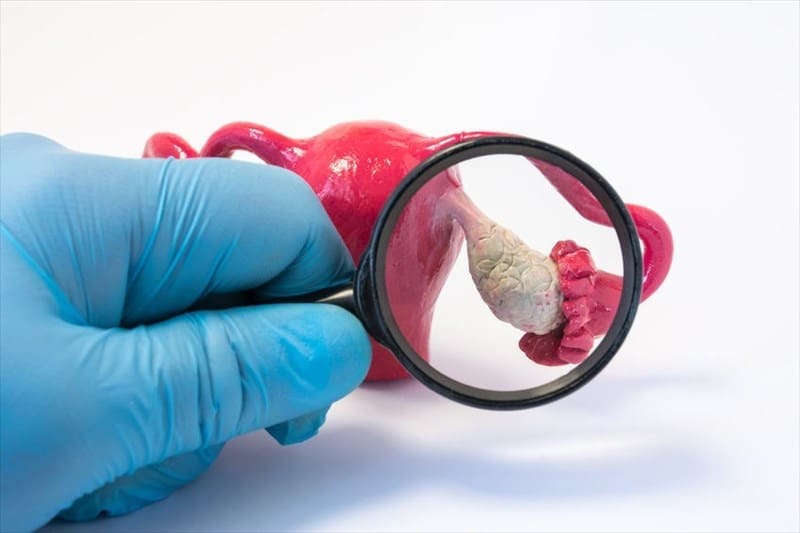Living with Polycystic Ovary Syndrome (PCOS) can be challenging, and for many individuals, managing its symptoms requires a multifaceted approach. Hormone injections have emerged as a crucial aspect of PCOS treatment, offering relief and aiding in the regulation of hormonal imbalances. In this comprehensive guide, we’ll delve into the world of hormone injections for PCOS, exploring their benefits, risks, and how they can play a pivotal role in improving the quality of life for those grappling with this complex condition.
Contents
When To Seek Hormone Injections For PCOS?
 Determining when to seek hormone injections for Polycystic Ovary Syndrome (PCOS) depends on individual symptoms, overall health, and the specific goals of the individual. Here are some indicators that may suggest it’s time to consider hormone injections for PCOS:
Determining when to seek hormone injections for Polycystic Ovary Syndrome (PCOS) depends on individual symptoms, overall health, and the specific goals of the individual. Here are some indicators that may suggest it’s time to consider hormone injections for PCOS:
- Irregular Menstrual Cycles Persist
If irregular periods persist and natural methods, such as lifestyle changes or oral contraceptives, have not effectively regulated the menstrual cycle, hormone injections may be considered.
- Uncontrolled Androgen Levels and Symptoms
Elevated androgen levels leading to persistent symptoms like hirsutism (excessive hair growth), acne, or male-pattern baldness may indicate the need for hormonal intervention.
- Fertility Concerns
For individuals struggling with infertility due to irregular ovulation, hormone injections may be recommended to induce regular ovulation and improve the chances of conception.
- Metabolic Issues and Insulin Resistance
If there are metabolic issues associated with PCOS, such as insulin resistance or an increased risk of developing type 2 diabetes, hormone injections may be part of a treatment plan to address these concerns.
- Lack of Improvement with Lifestyle Changes
When lifestyle modifications, such as diet and exercise, have not adequately improved symptoms or hormonal imbalances, hormone injections may be considered to provide more targeted management.
- Management of Specific PCOS-Related Symptoms
Hormone injections may be recommended to manage specific symptoms like irregular bleeding, acne, or excessive hair growth, especially if these symptoms significantly impact the individual’s quality of life.
It’s important to note that hormone injections are not a one-size-fits-all solution. Thus, their use should be guided by a healthcare professional’s assessment of the individual’s specific situation. The decision to pursue hormone injections should involve a thorough discussion of potential benefits, risks, and alternatives.
How Do These Injections For PCOS Work?
Hormone injections for PCOS work by regulating and balancing hormonal levels within the body. The primary goal is to address the hormonal imbalances characteristic of PCOS, specifically focusing on managing elevated androgen levels and promoting regular ovulation.
The process of receiving hormone injections for PCOS typically involves the following steps:
- Consultation with Healthcare Provider: Individuals with PCOS will undergo a thorough evaluation by a healthcare professional, who will assess symptoms, hormonal levels, and overall health.
- Prescription and Injection Instructions: If hormone injections are deemed appropriate, the healthcare provider will prescribe the specific medications and provide detailed instructions on how to administer the injections.
- Injection Administration: Depending on the type of hormone injection, individuals may need to self-administer injections at home or receive them in a clinical setting. Some injections are administered subcutaneously, while others may be given intramuscularly.
- Monitoring and Adjustments: Regular monitoring, including blood tests and ultrasound examinations, is essential to track the response to hormone injections. Healthcare providers may adjust the dosage or treatment plan based on individual needs and hormonal levels.
- Management of Side Effects: Individuals may experience side effects, and healthcare providers will guide them in managing any potential adverse reactions. Common side effects may include bloating, mood swings, or injection site reactions.
It’s crucial for individuals undergoing hormone injections for PCOS to maintain open communication with their healthcare providers. And, attend regular follow-up appointments, and adhere to the prescribed treatment plan.
Which Hormone Injection Is Good For PCOS?
 The choice of hormone injections for Polycystic Ovary Syndrome (PCOS) depends on the specific symptoms and goals of the individual. Two main types of hormone injections are commonly used in the treatment of PCOS: gonadotropins and anti-androgens.
The choice of hormone injections for Polycystic Ovary Syndrome (PCOS) depends on the specific symptoms and goals of the individual. Two main types of hormone injections are commonly used in the treatment of PCOS: gonadotropins and anti-androgens.
Gonadotropins
- Commonly Used Medications: Gonadotropins, including Follicle-Stimulating Hormone (FSH) and Luteinizing Hormone (LH), are often used to stimulate ovulation in women with PCOS.
- Examples: Medications such as human menopausal gonadotropin (hMG) or recombinant FSH are examples of gonadotropins used to induce ovulation.
- Application: Gonadotropins are typically administered through injections to mimic the natural hormonal signals that regulate the menstrual cycle.
Anti-Androgens
- Commonly Used Medications: Anti-androgens are prescribed to manage symptoms associated with elevated androgen levels, such as hirsutism, acne, and male-pattern baldness.
- Examples: Medications like spironolactone or flutamide are examples of anti-androgens commonly used for PCOS.
- Application: Anti-androgens are usually taken orally as pills.
The choice between gonadotropins and anti-androgens, or a combination of both, depends on the specific needs and symptoms of the individual. Here are some considerations:
- For Ovulation Induction: Gonadotropins (FSH and LH) are often used to induce ovulation in women with PCOS who are trying to conceive. These medications stimulate the development and release of eggs from the ovaries.
- For Managing Androgen-Related Symptoms: Anti-androgens may be prescribed to manage symptoms such as hirsutism, acne, and male-pattern baldness by reducing the effects of elevated androgens in the body.
- Combination Therapy: In some cases, healthcare providers may recommend a combination of gonadotropins and anti-androgens to address both ovulation issues and androgen-related symptoms.
It’s important to note that the use of hormone injections for PCOS should be determined by a healthcare professional based on a thorough evaluation of the individual’s health and specific symptoms.
What Are The Pros And Cons To Consider?
 When considering hormone injections for PCOS, it’s important to weigh the potential benefits against the associated risks and limitations. Here are some pros and cons to consider:
When considering hormone injections for PCOS, it’s important to weigh the potential benefits against the associated risks and limitations. Here are some pros and cons to consider:
Pros
- Ovulation Induction: Hormone injections, such as gonadotropins, can effectively stimulate ovulation in women with PCOS, improving fertility and increasing the chances of conception.
- Symptom Management: Anti-androgen medications can help manage symptoms related to elevated androgen levels, including hirsutism, acne, and male-pattern baldness.
- Individualized Treatment: Hormone injections can be tailored to the individual’s specific needs, providing a personalized treatment approach based on symptoms, fertility goals, and overall health.
- Regulation of Menstrual Cycles: For those with irregular or absent menstrual cycles, hormone injections can help regulate the menstrual cycle, promoting regularity.
- Fertility Support: Hormone injections can be a valuable component of fertility treatments for individuals with PCOS who are trying to conceive.
Cons
- Risk of Multiple Pregnancies: Ovulation induction with hormone injections carries a risk of multiple pregnancies (e.g., twins or more), which can pose additional challenges and health risks.
- Side Effects: Hormone injections may cause side effects such as bloating, mood swings, and injection site reactions. Anti-androgens may have side effects like dizziness or changes in potassium levels.
- Monitoring Requirements: Treatment with hormone injections requires close monitoring through blood tests and ultrasound examinations to adjust dosages and manage potential complications.
- Cost: The cost of hormone injections, especially fertility treatments, can be substantial. Insurance coverage may vary, and financial considerations should be taken into account.
- Not a Cure: Hormone injections address symptoms and promote ovulation but do not cure PCOS. Long-term management may be necessary to sustain the benefits.
- Risk of Ovarian Hyperstimulation Syndrome (OHSS): Ovulation induction medications, particularly gonadotropins, carry a risk of ovarian hyperstimulation syndrome, a condition characterized by enlarged ovaries and fluid retention.
Before deciding on hormone injections, individuals should have thorough discussions with their healthcare providers. Further, considering their overall health, fertility goals, and tolerance for potential side effects. Overall, regular communication, adherence to monitoring protocols, and shared decision-making with healthcare professionals are essential components of successful PCOS management with hormone injections.
Conclusion
In conclusion, hormone injections for PCOS can be a valuable tool in the management of symptoms and improving overall health. For those dealing with irregular menstrual cycles, fertility challenges, or symptoms related to elevated androgen levels, these injections offer targeted solutions. While they can stimulate ovulation, regulate menstrual cycles, and alleviate symptoms, it’s crucial to consider potential side effects and individual responses.
Working closely with healthcare professionals, discussing personal goals, and staying committed to regular monitoring are key to finding the right balance. Remember, each individual’s journey is unique. Therefore, the decision to explore injections should be made in collaboration with a healthcare team. If you are facing PCOS related issues, pcos treatment at HerMantra can help. Book your free trial online pcos treatment session now.


